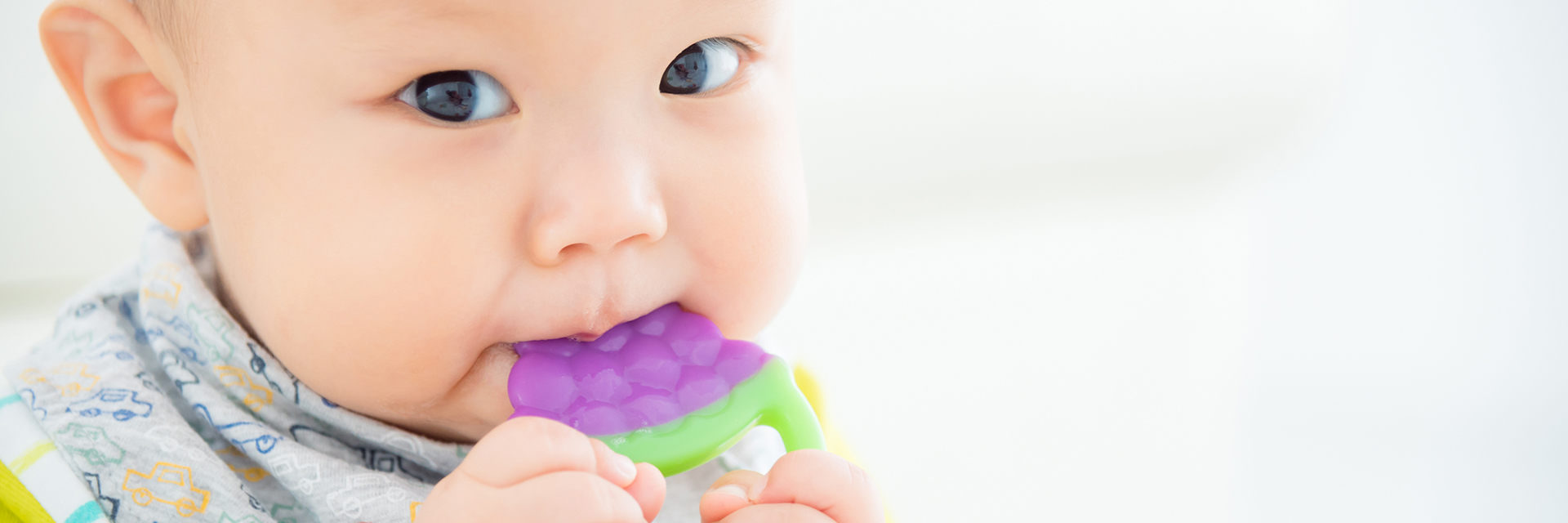Between 4 and 7 months of age, babies’ first teeth may emerge. New teeth arrive steadily until all 20 baby teeth are in place by the third birthday. Teething usually comes with drool and an urge to chew on things; it can also sometimes cause discomfort and crankiness.
If your baby’s gums seem tender and swollen, new teeth are probably breaking through. If your baby seems sick, check with your doctor before assuming that her discomfort is due to teething.
You can help her feel better by giving her something safe to chew on: a wet washcloth, a spoon or rubber teething rings, all cooled 30 minutes or so in the fridge or freezer. Just don’t let the items become frozen solid.
If she’s very uncomfortable, infant acetaminophen (Tylenol) may help, but check with your doctor and read the dosing information carefully first. Don’t use benzocaine products to relieve teething pain for children under age 2 unless directed by a healthcare professional.
This message is not intended to provide individual medical advice. Always seek the advice of a physician or qualified healthcare provider for any questions you have about your health or medical condition, your breastfeeding issues and your infant's health. Never disregard, avoid or delay contacting a doctor or other qualified professional because of something you have read in our emails, webpages or other electronic communications.
Powered by UbiCare

